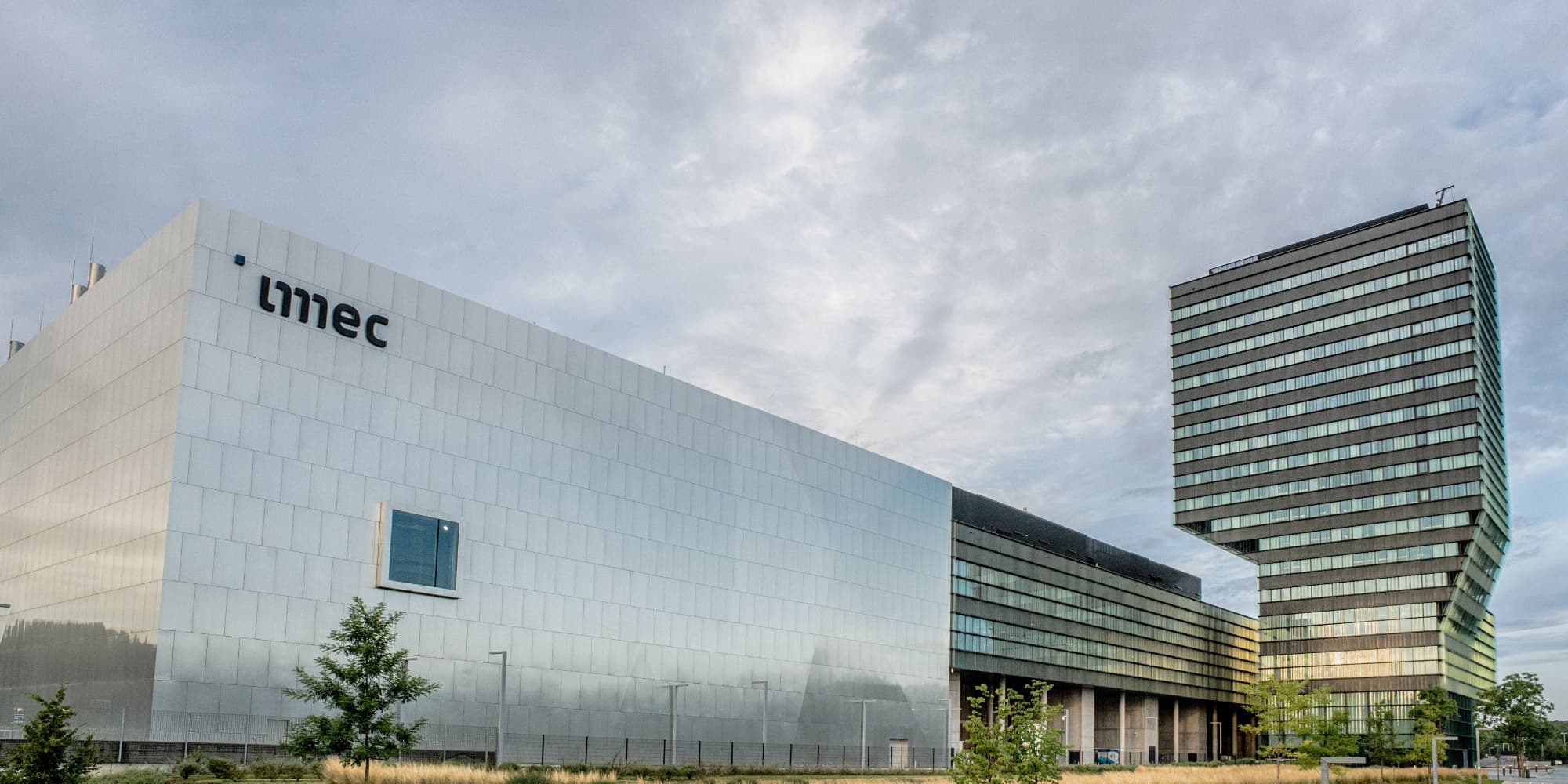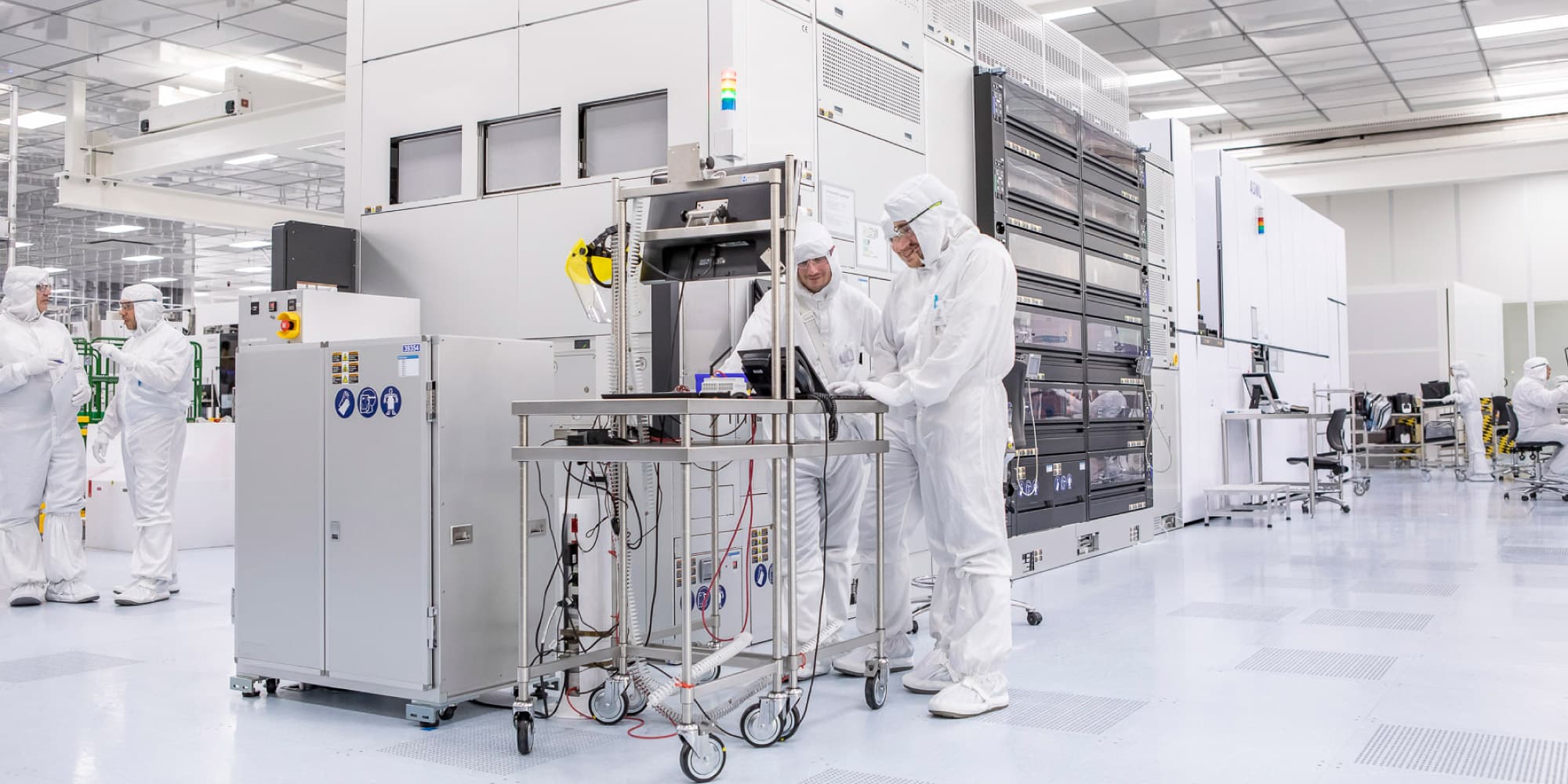
About imec
Imec was founded in 1984 and is today the world’s largest independent research and innovation center for nanoelectronics and digital technology.
As the chip lab of the world, imec drives the advancements that power today’s most cutting-edge technology. By making chips smaller, faster, more affordable, and more sustainable, we tackle the most pressing global challenges, such as climate change, pollution, accessible healthcare, and sustainable food provision. From the chips in your smartphone to the innovations transforming health, automotive, agritech, energy and beyond: imec is shaping the future.
A synergy between talent, infrastructure, and collaboration
Our ambition is supported by three valuable assets:
World-class infrastructure
Imec’s cutting-edge facilities, including a 3.5 billion euro 300mm semiconductor pilot line, state-of-the-art cleanrooms and labs, provide a technological playground for innovation. This world-leading infrastructure enables our researchers and partners to turn ideas into reality.

Global ecosystem
We innovate together. Imec works side by side with all players of the ecosystem in a neutral and open innovation model. From industrial partners to startups and over 200 universities: our global and local partnerships accelerate progress and bridge the gap between the lab and the market.
Our mission: embracing a better life
Imec is committed to sustainable developments for current and future generations. As the chip lab of the world, we can and want to inspire and involve the entire microchip value chain. Together we aim to develop technologies that contribute to a more sustainable future by focusing on the positive impact of future chip technologies. Our mission is to create disruptive innovations that make a positive and lasting impact on society.
Local and global impact
Headquartered in Leuven, Belgium, imec operates globally, with offices across Belgium, Europe, the USA, the UK, and Asia. Our mission is to lead in R&D while engaging in impactful local projects with businesses and governments, and we have been doing so for over 40 years.
In the Netherlands, the OnePlanet Research Center builds high-level solutions within precision health and agriculture, while the Holst Centre focuses on societal challenges like health & vitality, energy, mobility, and Industry 5.0 through advanced micro-electronics and sensor technology.
In the UK, our office in Cambridge strengthens our ties with the local tech ecosystem, focusing on chip design research and engineering on leading-edge technologies such as system-technology co-optimization (STCO) and design-technology co-optimization (DTCO).
Supported by the Government of Spain and the Junta de Andalucía, we will build a state-of-the-art 300mm cleanroom in Málaga to advance R&D in semiconductor technologies. Imec Spain will play a key role in driving groundbreaking innovation, developing talent, and boosting high-tech growth in the region through a strong collaboration with academic and industrial partners.
In Germany, our new Advanced Chip Design Accelerator (ACDA) competence center, based at the Innovation Park AI (IPAI) in Heilbronn, we will accelerate the future of automotive. By leveraging imec’s world-leading expertise in semiconductor technology and packaging, we will be building the chiplet-based solutions that will power the vehicles of tomorrow to be smarter, safer, and more efficient.
In the USA, we engage in strategic partnerships with leading companies and universities.
- At the NeoCity campus in Florida, we research cryogenic superconductive digital computing, advanced RF, and advanced semiconductor speciality packaging. We are an integral research partner in the National Science Foundation (NSF) Central Florida Semiconductor Engine, which aims to provide innovative advanced packaging solutions in the US, as well as inclusive workforce development, and ecosystem building.
- At Purdue University, in Indiana, our center of excellence focuses on high-performance computing and packaging materials, models and architectures, and more sustainable semiconductor technologies and systems.
- In Michigan, at the University of Michigan, imec is advancing semiconductor technologies for the automotive industry focusing on chiplets, sensors, STCO, DTCO, and advanced materials. Our partnership with the University of Michigan aims to perform collaborative research on semiconductor materials and system architecture. Together with our partners we created a global program called star that unites innovators from the automotive and semiconductor ecosystem. Mstar, the US chapter of star, focuses on the Michigan ecosystem through research, workforce development, automotive semiconductor research and local ecosystem building.
Imec Italy supports the growing demand for advanced chip design with its specialized team in Naples while working alongside our Leuven experts to accelerate next-generation digital chip development. As a TSMC Value Chain Alliance member, we are helping customers move efficiently from design to production using TSMC’s cutting-edge technologies.
An independent impact study in Flanders shows that between 2014 and 2023, imec realized 6.98 billion euros in added value in Flanders, and the fiscal return amounted to 3.9 billion euros. For every euro in grants, we generate 11.7 euros in added value and fiscal return.
The presence of imec also boosts the local start-up landscape:
- More than 300 tech start-ups have already emerged through the accelerator program imec.istart. Together they raised almost over 1 billion euros in follow-on funding.
- The imec.xpand fund already collected more than 400 million euro for start-up investments in deep tech.
- Several of the more than 120 spin-offs that imec has founded are gradually growing into the successful companies of tomorrow.
This way, the imec cluster provides more than 13,400 jobs, of which 2,900 in spin-offs.
Read more in our corporate brochure.

Interested to know how imec grew from a bold idea to the chip lab of the world?

